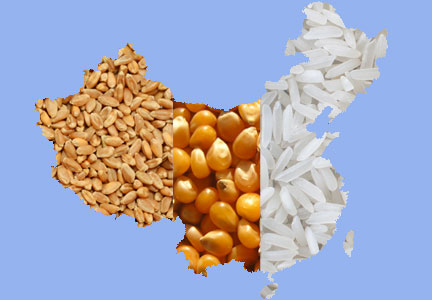-
Tips for becoming a good boxer - November 6, 2020
-
7 expert tips for making your hens night a memorable one - November 6, 2020
-
5 reasons to host your Christmas party on a cruise boat - November 6, 2020
-
What to do when you’re charged with a crime - November 6, 2020
-
Should you get one or multiple dogs? Here’s all you need to know - November 3, 2020
-
A Guide: How to Build Your Very Own Magic Mirror - February 14, 2019
-
Our Top Inspirational Baseball Stars - November 24, 2018
-
Five Tech Tools That Will Help You Turn Your Blog into a Business - November 24, 2018
-
How to Indulge on Vacation without Expanding Your Waist - November 9, 2018
-
5 Strategies for Businesses to Appeal to Today’s Increasingly Mobile-Crazed Customers - November 9, 2018
USA challenges China grain subsidies at WTO
U.S. Trade Representative (USTR) Michael Froman, Agriculture Secretary Tom Vilsack, and a bipartisan group of federal lawmakers today announced the launch of trade enforcement action against China at the World Trade Organization (WTO).
Advertisement
The United States alleges China, the world’s largest producer of wheat and rice, doled out “market price support” for the grains above levels agreed at the Geneva-based WTO, making Chinese farmers more competitive around the world.
“Through tariff cuts and the removal of other trade barriers, China has gone from a $2-billion-a-year market for US agricultural products to a $20-billion-plus market”, Vilsack said.
USTR said it found that China’s domestic price supports for wheat, Indica rice, Japonica rice and corn had all exceeded the 8.5 percent “de minimis” level allowed under the WTO commitment for every year since 2012.
Trade analysts noted that the U.S. seemed to have taken a decision to challenge China’s support under the WTO Agreement on Agriculture, rather than under its Agreement on Subsidies and Countervailing Measures – possibly as China’s status as a major importing country could mean it might be harder to demonstrate the “injury” to USA producers that would be required under the latter.
Since taking office, President Barack Obama has overseen two dozen new trade enforcement actions at the WTO, with 14 of those against China and three against India.
The Chinese side will stick to providing government support for the agricultural sector in line with WTO rules and enhancing the agricultural trading system, China’s Ministry of Commerce said in a statement. And when other countries flout the rules to try and undercut American workers and farmers, we hold them accountable.
The United States is urging the World Trade Organization to clamp down on what it considers unfair supports for farmers by the Chinese government.
“The most likely impact in the next six months might be to motivate China to impose anti-dumping tariffs on USA products, including agricultural products”, William Tierney, chief economist for Chicago-based research and analysis firm AgResource Co., said in a telephone interview.
“It’s all the more important that we finalize TPP soon because as we speak China is negotiating a trade deal of its own – one that would carve up the growing Asia-Pacific markets at our expense, risking American jobs, businesses and goods”, the president said. The Trans-Pacific Partnership, or the TPP, is a trade agreement with 12 nations that puts in place the highest standards of any trade deal in history. China is looking to negotiate its own trade deal – one that doesn’t reflect American values and one that will leave US workers and businesses behind.
These programs cost US wheat farmers between $650 and $700 million annually in lost income by pre-empting export opportunity and suppressing global prices, according to a 2016 Iowa State University study sponsored by USW. “We can’t let that happen”.
Advertisement
A victory for the US could force China to reduce its agricultural subsidies or face retaliatory trade tariffs worth tens of billions of dollars.





























